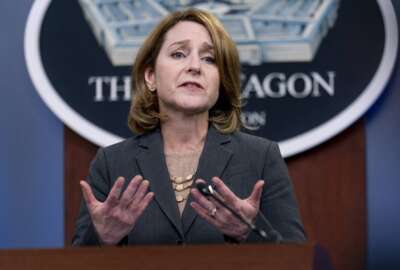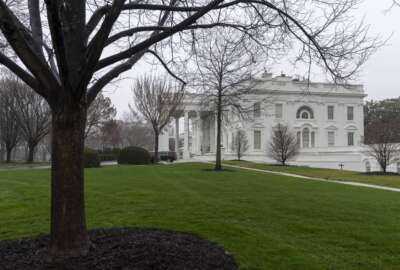While passing the 2024 defense budget was arduous as lawmakers struggled to agree on government funding plans for nearly six months into the fiscal year, negotiating the 2025 defense spending is shaping up to be “particularly difficult.”
The Pentagon proposed a fiscal 2025 budget of $849.8 billion, about 1% higher than this year’s budget request. The top line figure aligns with the Fiscal Responsibility Act passed last year, which sets limits on defense and non-defense discretionary spending. Defense officials said the 1% increase would not be enough to cover inflation.
“Overall, [fiscal 2024] was a good budget. As we pivot toward this year, I think it’s a much more difficult budget, we’re gonna see some very difficult trade-offs. I’m not sure if we’re going to see as positive outcomes as all communities might want see,” Matt Borron, the Association of Defense Communities executive director, said during the Defense Communities National Summit on Tuesday.
2024 being an election year adds complexity to negotiating and passing the 2025 defense budget. Members of Congress will go back to their districts in July and return sometime in the fall to pass a continuing resolution to temporarily fund the federal government. After that, they won’t be back until after the presidential election.
“I think every year we seem to find new ways to make this hard. And yet, we generally still manage to get it across the line. But this year does feel particularly difficult. And election years can play either way. You can have folks willing to make a deal to get things done before they go home and try to keep their jobs. But it doesn’t feel that way right now. So I think it is going to be rough,” Jeanine Womble, the House Armed Services Committee staff lead, said.
Passing the 2025 NDAA
Borron said while there were some contentious issues during the 2024 National Defense Authorization Act negotiations, they weren’t “as contentious as they might have come across in some of the debates.”
“That’s why I think you got a relatively quick passage of the NDAA certainly, as compared to the appropriations bill,” said Borron.
The same social issues, such as the Diversity, Equity and Inclusion spending, will most likely come up during this year’s NDAA negotiations. But the resolution of those contentious issues will hinge on the results of this year’s election.
“I think you’re gonna see those same social issues come up for discussion. I don’t see necessarily a different outcome this year,” said Borron.
“All of that is really dependent on the election. I think they can resolve many of those issues, but the more contentious ones are going to have to wait until we know who’s in charge of the White House, who’s running the Senate, who’s running the House. I think in general, there’s a desire to make members as happy as possible. But I don’t think those contentious issues have really changed. The needle hasn’t shifted. We’ll see a rehash of it. And the outcome will be dependent on the elections.”
Womble believes that despite the contentious issues that will come up during this year’s round of debates, the NDAA will ultimately pass.
“I can’t give you a certain date when it will pass, but I believe it will,” said Womble.
“Maybe not quite before October 1, but in the neighborhood. I truly believe that Rep. Mike Rogers, R-Ala., chairman of the House Armed Services Committee, Rep. Adam Smith (D-Wash.) and the members of [the House Armed Services Committee] very much want to get it done every year. There are contentious issues every year, there are things that go to the very end. In a bipartisan way, the committee finds a way.”
Copyright
© 2024 Federal News Network. All rights reserved. This website is not intended for users located within the European Economic Area.






